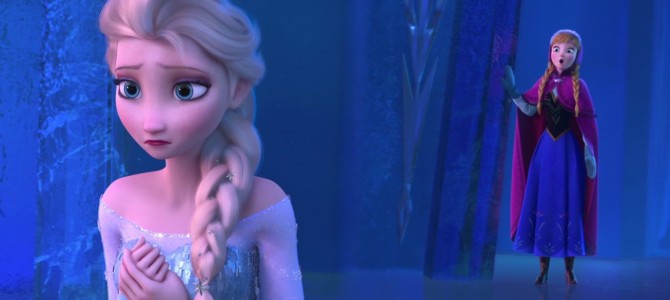On Monday, a new hashtag was trending (#GiveElsaAGirlfriend) among Disney fans, asking producers to create a female love interest for Princess Elsa in the sequel to the children’s movie “Frozen.” Recently, Star Wars’ Mark Hamill (Luke Skywalker) tweeted, in response to a fan question, that Luke’s sexuality is “open to interpretation.” J.J. Abrams, director of Disney’s “The Force Awakens,” has suggested “Star Wars” needs gay characters, and social media has been abuzz with rumors about Finn and Poe, two of the male leads in the film.
Something has happened to the Star Wars galaxy, to Disney, and indeed to Hollywood itself, that is changing such movies from myths into polemics. Call it the gender-bending of stereotypes.
These are just a few manifestations of the idea that any person’s identity is reducible to his or her sexual orientation. Every stereotype must now be bent to focus on sexuality. One cannot merely be a stereotypical scoundrel (Han Solo), a naïve teen turned warrior (Luke), a wise and powerful wizard (Dumbledore), the courageous princess (Elsa), the dark hero (Batman), or a stock villain (pick one). Now each character must be fitted, or retrofitted, not with makeup, a costume, or prosthetics—because, after all, we all look the same—but with a gender identity backstory. They must wear their sexuality on their sleeves.
There Go Self-Determination and Choice
In the age-old debate of fate versus free will, we have decidedly settled on fate. Freud claimed that we are not really free to choose, being driven almost exclusively by our libido. What makes us human is the freedom to act upon our sexual preferences and identity. Sex is no longer something we do, it is something that we are; it is not a behavior but an identity.
Hollywood writers and directors are only giving audiences what they want to see. Vanity Fair commented, “Hamill’s messages have taken advantage of the films’ deliberate vagueness to provide a little bit of inspiration for marginalized fans feeling frustrated that they haven’t been able to see themselves reflected in the beloved franchise.”
If the only aspect of personal identity that counts is sexuality, then perhaps some fans do not see themselves in Frozen or the Star Wars movies. But this is a deep misunderstanding of who we are as human beings, of what it means to have human dignity. Humans of course have a natural desire for intimacy, but our desires should direct us outside of ourselves and ultimately toward God, as Thomas Aquinas suggests. What is happening in Hollywood is a matter of wrongly directed desires—both gay and straight, both male and female (witness the success of movies like “Fifty Shades of Grey”). All of these can easily point us away from God.
People Are More than Their Urges
Humans are complex and marvelous creatures. Ethicist Gilbert Meilaender explains, “Human existence is lived ‘in between,’ and to honor human dignity is to honor precisely the in-betweenness that marks our condition. The human person – neither beast nor god – is a real union of body (that ties us to the beasts) and soul (that directs us to God).”
In the Star Wars universe, even droids are more than mere machines, having humor, wit, and emotions. Humans are not simply the sum of our biological desires. Any simplistic view of persons that elevates one aspect of identity over all others ultimately dehumanizes us.
As C.S. Lewis put it in “The Weight of Glory,” “You have never talked to a mere mortal. Nations, cultures, arts, civilizations – these are mortal, and their life is to ours as the life of a gnat. But it is immortals whom we joke with, work with, marry, snub, and exploit – immortal horrors or everlasting splendors.”
Immortal or mortal, hero or villain, gay or straight, characters on the big screen should be portrayed with a deeper understanding of human dignity. We should not settle for representations of humans, even as stereotypes, that are poor caricatures of creatures made in God’s image, beings who are just a little lower than the angels, fallen—with wrongly directed desires, yet with hope of redemption.
Immortal horrors and everlasting splendors. Now, that’s a theme for a Hollywood film.









